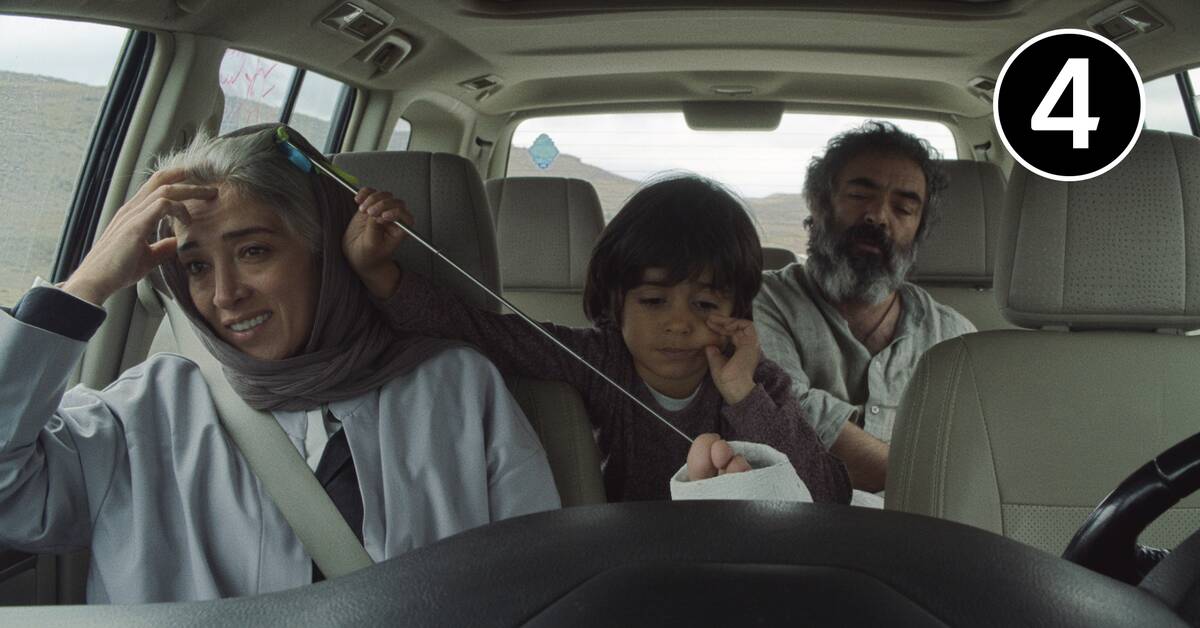What
about the Panahi family and cars?
Jafar's father, a distinguished Persian film director and famous dissident, has put many of his stories behind the wheel, from Taxi Tehran to Three Women, and now that his son Panah is making his feature film debut, he is also doing so from the driver's seat.
The car as a symbol of freedom, well, we have seen it before, not least in American mythology.
But when the desire for freedom is portrayed in a theological dictatorship like the Iranian one, it obviously gets more pregnancy (even the old Persian master Abbas Kiarostamis liked to put his lead roles in various carts, not least in one of his most acclaimed works, Taste of Cherries).
Panah Panahi
begins its debut work with a panning from a camera placed in a rented car where the family we are to follow for just over 90 minutes argues raw but heartily.
The little son lets his motor mouth grind on, to the parents' annoyance.
Dad is also sitting in the back seat - which is just a clear stance in a strong patriarchal society - with plastered legs, mother in the front passenger seat and at the wheel the quiet eldest brother.
Observant and serious, as he wishes he were elsewhere.
And that's also where he's headed.
The whole film takes place during the trip that the family takes to help the older son escape the country.
We do not know why he has to go out, not where the family is going and not why.
Panah Panahi probably got the
dry humor with her father's milk (an ugly thought picture).
Just like the father, the son presents his social critique with a smile on his face.
Even more so in fact, here is a warm and dripping tone that spontaneously makes my brain dust off the memory of Lars Molin.
Now rather forgotten, but in his time a master of the branch easygoing and affectionate system criticism (Bathing bastards, Royal toilet and much more)
Well, back to the car that has now reached the wilderness where the family meets others who are also in place to help someone close across the border.
But we are still uncertain about what is really going to happen.
Panahi's script releases the occasional clue along the roadside, but otherwise the film follows as much the dramaturgy of the dream as the reality.
The last act
creeps forward, but at the same time offers a sometimes magical imagery that suggests that we have stepped into another dimension.
The mother, who has fallen asleep, wakes up and asks where they are, to which the youngest responds: "We are dead."
Another joke from the fun-loving parvel.
Or maybe a correct statement?
Panahi the Elder is straighter, seems to care more about content than surface, and has thus also got the regime in his pockets (he still has a professional ban but always manages in various ways to steer clear of oppression), while his son's more poetic disposition has so many possibilities for interpretation that the film is supposed to make it spin under the ayatollahs' turbans.
Also a way to be a dissident.
Dad can be proud.

